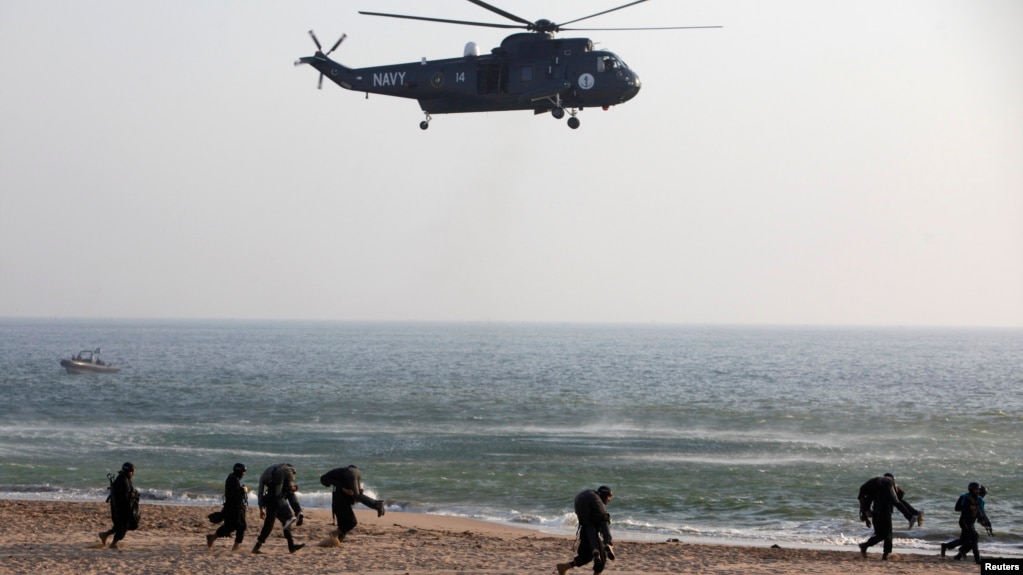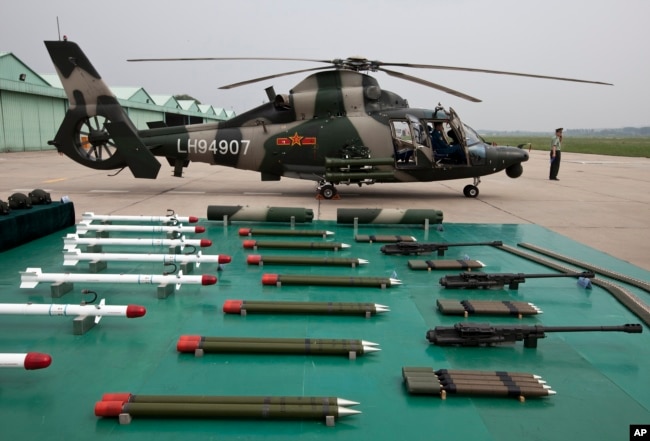Nukhbat Malik
 From rifles to combat aircraft and warships, China has become the dominant supplier of weapons to Pakistan, Bangladesh and Myanmar, according to the latest report by the Stockholm International Peace Research Institute (SIPRI). Titled "Trends in International Arms Transfer, 2017" the report reflects on the major change in the geopolitical sphere of South Asia. Weapons sales to Pakistan by the United States have dropped by 76 percent in the past five years, according to the report. China has become the biggest supplier of arms to India's archrival neighbor, providing 35 percent of its arms to Pakistan from 2013 to 2017.
From rifles to combat aircraft and warships, China has become the dominant supplier of weapons to Pakistan, Bangladesh and Myanmar, according to the latest report by the Stockholm International Peace Research Institute (SIPRI). Titled "Trends in International Arms Transfer, 2017" the report reflects on the major change in the geopolitical sphere of South Asia. Weapons sales to Pakistan by the United States have dropped by 76 percent in the past five years, according to the report. China has become the biggest supplier of arms to India's archrival neighbor, providing 35 percent of its arms to Pakistan from 2013 to 2017.
FILE - A military officer stands near a Z-9WZ attack helicopter and weapons, designed and manufactured by China, on the outskirts of Beijing, July 24, 2012. China has provided 35 percent of its arms to Pakistan from 2013 to 2017, according to the Stockholm International Peace Research Institute.
According to the report, the United States, Russia, Germany, France and China are currently importing 74 percent of the weapons around the globe, which makes them the largest arms importers globally.
The report said the United States was once the largest exporter of weapons to Pakistan. But recent tensions between the two countries have significantly affected arms sales, particularly from 2013 to 2017, when there has been a large decrease in arms transfers from the U.S. to Pakistan.
Relations between the U.S. and Pakistan deteriorated after a November 2011 incident in which 26 Pakistani troops were killed in NATO attacks on two military checkpoints. Pakistan retaliated by closing both of its borders into Afghanistan, effectively suspending NATO supply convoys through the country to its land-locked neighbor.
The Trump administration has accused Pakistan of supporting militant groups that launch attacks across the border into Afghanistan, accusations that Pakistan denies.
Pakistani officials say geopolitics demand that the country should not be relying on the U.S. only when it comes to security needs.
Talking to VOA, Pakistani professor Zafar Jaspal said Pakistan wants to be self-sufficient in making small weapons, and that's the country's foremost effort.
"Pakistan's reliance on just one country has not been a fruitful experience," Jaspal said. "Therefore, the shift in the foreign policy now demands that the weapon import of Pakistan should be multinational."
The SIPRI report said China provides 70 percent of weapons to Pakistan. The U.S. is the second-largest arms supplier with 12 percent, while Russia is third with 5.7 percent.
Jaspal said Pakistan is not only importing weapons from China, but the two countries are exchanging technology, as well.
No comments:
Post a Comment